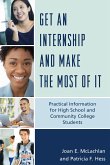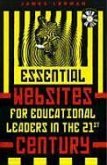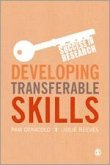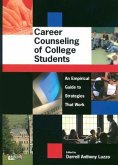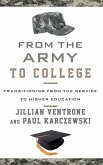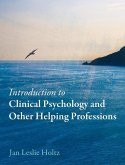Clinical Education for the Health Professions: Theory and Practice
Herausgeber: Nestel, Debra; McKenna, Lisa; Reedy, Gabriel
Clinical Education for the Health Professions: Theory and Practice
Herausgeber: Nestel, Debra; McKenna, Lisa; Reedy, Gabriel
- Gebundenes Buch
- Merkliste
- Auf die Merkliste
- Bewerten Bewerten
- Teilen
- Produkt teilen
- Produkterinnerung
- Produkterinnerung
¿This book compiles the state of the art and science of health professions education into one truly international resource with expertise in many and varied topics. It aligns profession specific contributions with inter-professional offerings, and prompts readers to think deeply about their educational practices. The book explores the contemporary context of health professions education, philosophical and theoretical underpinnings, whole of curriculum considerations, supporting learning in clinical settings. In specific topics, it approaches to assessment, evidence-based educational methods,…mehr
Andere Kunden interessierten sich auch für
![Get an Internship and Make the Most of It Get an Internship and Make the Most of It]() Joan E McLachlanGet an Internship and Make the Most of It116,99 €
Joan E McLachlanGet an Internship and Make the Most of It116,99 €![Essential Websites for Educational Leaders in the 21st Century Essential Websites for Educational Leaders in the 21st Century]() James LermanEssential Websites for Educational Leaders in the 21st Century82,99 €
James LermanEssential Websites for Educational Leaders in the 21st Century82,99 €![Developing Transferable Skills Developing Transferable Skills]() Pam DenicoloDeveloping Transferable Skills138,99 €
Pam DenicoloDeveloping Transferable Skills138,99 €![Career Counseling of College Students an Empirical Guide to Strategies That Work Career Counseling of College Students an Empirical Guide to Strategies That Work]() D. a. LuzzoCareer Counseling of College Students an Empirical Guide to Strategies That Work23,99 €
D. a. LuzzoCareer Counseling of College Students an Empirical Guide to Strategies That Work23,99 €![From the Army to College From the Army to College]() Jillian VentroneFrom the Army to College58,99 €
Jillian VentroneFrom the Army to College58,99 €![Ridiculously Amazing Schools: Creating A Culture Where Everyone Thrives Ridiculously Amazing Schools: Creating A Culture Where Everyone Thrives]() Tracey SmithRidiculously Amazing Schools: Creating A Culture Where Everyone Thrives38,99 €
Tracey SmithRidiculously Amazing Schools: Creating A Culture Where Everyone Thrives38,99 €![Introduction to Clinical Psychology and Other Helping Professions Introduction to Clinical Psychology and Other Helping Professions]() Jan Leslie HoltzIntroduction to Clinical Psychology and Other Helping Professions171,99 €
Jan Leslie HoltzIntroduction to Clinical Psychology and Other Helping Professions171,99 €-
-
-
¿This book compiles the state of the art and science of health professions education into one truly international resource with expertise in many and varied topics. It aligns profession specific contributions with inter-professional offerings, and prompts readers to think deeply about their educational practices. The book explores the contemporary context of health professions education, philosophical and theoretical underpinnings, whole of curriculum considerations, supporting learning in clinical settings. In specific topics, it approaches to assessment, evidence-based educational methods, governance, quality improvement, scholarship and leadership in health professions education and some forecasting of trends and practices. This book offers an invaluable resource for students, educators, academics and others interested in health professions education.
Hinweis: Dieser Artikel kann nur an eine deutsche Lieferadresse ausgeliefert werden.
Hinweis: Dieser Artikel kann nur an eine deutsche Lieferadresse ausgeliefert werden.
Produktdetails
- Produktdetails
- Verlag: Springer London
- 2021
- Seitenzahl: 1800
- Erscheinungstermin: 27. Juni 2021
- Englisch
- ISBN-13: 9789811533457
- ISBN-10: 9811533458
- Artikelnr.: 59179822
- Herstellerkennzeichnung
- Libri GmbH
- Europaallee 1
- 36244 Bad Hersfeld
- gpsr@libri.de
- Verlag: Springer London
- 2021
- Seitenzahl: 1800
- Erscheinungstermin: 27. Juni 2021
- Englisch
- ISBN-13: 9789811533457
- ISBN-10: 9811533458
- Artikelnr.: 59179822
- Herstellerkennzeichnung
- Libri GmbH
- Europaallee 1
- 36244 Bad Hersfeld
- gpsr@libri.de
Debra Nestel is Professor of Simulation Education in Healthcare at Monash University, and Professor of Surgical Education, Department of Surgery, University of Melbourne, Australia. Her research interests include the role of simulation in supporting learning, particularly in procedural and operative skills. She has extensive experience in working with simulated patients to support the development of communication and other professional skills. She has extensive experience in faculty development and research on health professions education and surgical education. She is Editor-in-Chief, BMJ STEL. Gabriel Reedy is a Reader in Clinical Education, and Programme Director of the Masters in Clinical Education, at King's College London, UK. His research focuses on the use of simulation in health professions education; the ways in which health professionals learn to practice in clinical settings; the development of faculty in health professions; and the ways in which early responders learn, both individually and in the context of teams, to deal with large-scale emergency events. He is Editor-in-Chief, Advances in Simulation. Lisa McKenna is Professor and Head of the School of Nursing and Midwifery at La Trobe University, Australia. She has extensive experience in teaching undergraduate and postgraduate health professionals, in particular nurses and midwives. Her current research is particularly focused around peer-assisted learning, simulation and nursing curricula. She is Editor-in-Chief, Collegian: The Australian Journal of Nursing Practice, Scholarship and Research. Suzanne Gough is Associate Dean, Learning & Teaching, Faculty of Health Sciences & Medicine, and Associate Professor, Physiotherapy, Faculty of Health Sciences & Medicine, Bond University, Australia. Her research interests include curriculum integration of simulation-based education (SBE), cardio-respiratory physiotherapy education, patient safety, human factors and inter-professional SBE, video-reflexivity and video-ethnography.
Part 1: The contemporary context of health professions education.
1 Contemporary context of health professions education.
2 Contemporary context of medical education: Undergraduate/graduate entry.
3 Contemporary context of medical education: Prevocational training.
4 Contemporary context of medical education: Specialty training.
5 Contemporary context of surgical education.
6 Contemporary context of general practice/family medicine education.
7 Contemporary context of internal medicine education.
8 Contemporary context of anaesthesia education.
9 Contemporary context of nursing education.
11 Contemporary context of midwifery.
12 Contemporary context of allied health education.
13 Contemporary context of paramedicine education.
14 Contemporary context of dental education.
15 Contemporary context of interprofessional practice education.
16 Historical perspectives on medical education.
17 Historical perspectives on dental education.
18 Historical perspectives on surgical education.
19 Historical perspectives on nursing and midwifery education.
20 Historical perspectives on allied health education.
21 Historical perspective on interprofessional education.
Part 2: Philosophical and theoretical underpinning of health professional education.
22 Philosophical positions in contemporary educational practice.
23 Perspectives on learning: Overview of theories.
24 Focus on theory: Cognitive neuroscience.
25 Focus on theory: Expertise theories.
26 Focus on theory: Mastery learning.
27 Focus on theory: Threshold concepts.
28 Focus on theory: Social semiotics.
29 Focus on theory: Workplace
based learning theories.
30 Focus on theory: Communities of practice.
31 Focus on theory: Socio
material and complexity theories.
32 Focus on theory: Activity theory.
33 Focus on theory: Discovery learning.
34 Focus on theory: Experiential learning.
35 Focus on theory: Reflective practice.
36 Focus on theory: Transformative learning.
37 Focus on theory: Self
regulatory learning.
38 Focus on theory: Foucault.
30 Focus on theory: Bourdieu.
40 Focus on theory: Baudrillard.
41 Focus on theory: Professional identity theories.
42 Making use of theory in health professions education: Scenario 1.
43 Making use of theory in health professions education: Scenario 2.
44 Making use of theory in health professions education: Scenario 3.
45 Making use of theory in health professions education: Scenario 4.
Part 3 Curriculum considerations in health professions education.
46 Approaches to curriculum design in health professions education.
47 Health professional curricula and public engagement.
48 The role of patients in health professions education.
49 The emergence of competency
based health professions education.
50 Interprofessional education: Why, when and how.
51 Ethical issues in educational practice.
52 Simulation in clinical re
placement.
53 Managing the explosion of clinical knowledge for health professions.
54 Approaches to developing clinical skills.
55 Developing professional identity in health professional students.
56 Hidden, informal and formal curricula in health professions education.
57 Conversations to support learning in health professions education.
58 The arts and humanities in health professions education.
59 Creating safety in simulation
based education.
60 Debriefing practices in simulation
based education.
61 Written feedback in health professions education.
62 Formal and informal supervision in health professions education.
63 Ad hoc supervision in general practice.
64 Identifying and managing underperforming students/trainees.
65 Managing diversity in health professions education.
66 Expanding scope of practice in health professions education.
Part 4 Supporting learning in clinical settings.
67 Learning and teaching at the bedside: Expert commentary from an interprofessional perspective.
68 Learning and teaching at the bedside: Expert commentary from a medical perspective.
69 Learning and teaching at the bedside: Expert commentary from a nursing perspective.
70 Learning and teaching at the bedside: Expert commentary from a midwifery perspective.
71 Learning and teaching at the chair side: Expert commentary from a dental perspective.
72 Learning and teaching in the operating theatre: Expert commentary from a surgical perspective.
73 Learning and teaching in the operating theatre: Expert commentary from an anaesthetic perspective.
74 Learning and teaching in the operating theatre: Expert commentary from nursing perspective.
75 Learning and teaching in the outpatient department: Expert commentary from medical perspective.
76 Learning and teaching in the outpatient department: Expert commentary from a paediatric perspective.
77 Learning and teaching in critical care settings.
78 Learning and teaching in rural settings.
79 Learning and teaching in community settings.
80 Learning and teaching in the emergency department.
Part 5: Assessment in health professions education.
81 Approaches to assessment: A perspective from education.
82 Measuring knowledge: Current practices in health professions education.
83 Measuring attitudes: Current practices in health professions education.
84 Measuring performance: Current practices in health professions education.
85 Making meaning of psychometrics.
86 Programmatic assessment.
87 Focus on assessment methods: The Objective Structured Clinical Examination.
88 Focus on assessment methods: Written examinations in health professions education.
89 Focus on assessment methods: Entrustable professional activities.
90 Focus on assessment methods: Work
place based assessment.
91 Peer assessment in health professions education.
92 Principles and practices of high stakes assessments in health professions education.
93 Certification and revalidation for health professions practice.
94 Focus on selection methods: Evidence and practices.
Part 6 Evidence
based health professions education: Focus on educational methods.
95 Group learning in health professions education.
96 Problem
based learning.
97 Peer assisted learning.
98 Portfolios in health professions education.
99 Simulation for procedural skills.
100 Simulation for clinical skills.
101 Screen
based learning.
102 Coaching in health professions education: The case of surgery.
Part 7 Evidence
based health professions education: Focus on content.
103 Developing health professional teams.
104 Supporting the development of professionalism.
105 Developing patient safety.
106 Supporting the development of professionalism in health professional students and trainees.
107 Supporting the development of patient
centred communication skills.
108 Supporting the development and maintenance of empathy in health professional students.
109 Supporting the development of clinical reasoning.
110 Teaching and learning biomedical sciences.
Part 8 Governance, quality improvement, scholarship and leadership in health professions education.
111 Theories of programme evaluation.
112 Programmatic evaluation in health professions curricula.
113 Governance in health professions education: Entry level.
114 Governance in health professions education: Specialty level.
115 The role of the academy/professional association in health professions.
116 Developing scholarship in health professions education.
117 Developing educational leadership in health professions education.
118 Constructing health professional identities: Becoming an educator.
Part 9 Future directions for health professions education.
119 Global perspective on health professions education: Expert commentary from medicine.
120 Global perspective on health professions education: Expert commentary from nursing.
121 Health professional educators in the future.
122 Health professions education in the future.
1 Contemporary context of health professions education.
2 Contemporary context of medical education: Undergraduate/graduate entry.
3 Contemporary context of medical education: Prevocational training.
4 Contemporary context of medical education: Specialty training.
5 Contemporary context of surgical education.
6 Contemporary context of general practice/family medicine education.
7 Contemporary context of internal medicine education.
8 Contemporary context of anaesthesia education.
9 Contemporary context of nursing education.
11 Contemporary context of midwifery.
12 Contemporary context of allied health education.
13 Contemporary context of paramedicine education.
14 Contemporary context of dental education.
15 Contemporary context of interprofessional practice education.
16 Historical perspectives on medical education.
17 Historical perspectives on dental education.
18 Historical perspectives on surgical education.
19 Historical perspectives on nursing and midwifery education.
20 Historical perspectives on allied health education.
21 Historical perspective on interprofessional education.
Part 2: Philosophical and theoretical underpinning of health professional education.
22 Philosophical positions in contemporary educational practice.
23 Perspectives on learning: Overview of theories.
24 Focus on theory: Cognitive neuroscience.
25 Focus on theory: Expertise theories.
26 Focus on theory: Mastery learning.
27 Focus on theory: Threshold concepts.
28 Focus on theory: Social semiotics.
29 Focus on theory: Workplace
based learning theories.
30 Focus on theory: Communities of practice.
31 Focus on theory: Socio
material and complexity theories.
32 Focus on theory: Activity theory.
33 Focus on theory: Discovery learning.
34 Focus on theory: Experiential learning.
35 Focus on theory: Reflective practice.
36 Focus on theory: Transformative learning.
37 Focus on theory: Self
regulatory learning.
38 Focus on theory: Foucault.
30 Focus on theory: Bourdieu.
40 Focus on theory: Baudrillard.
41 Focus on theory: Professional identity theories.
42 Making use of theory in health professions education: Scenario 1.
43 Making use of theory in health professions education: Scenario 2.
44 Making use of theory in health professions education: Scenario 3.
45 Making use of theory in health professions education: Scenario 4.
Part 3 Curriculum considerations in health professions education.
46 Approaches to curriculum design in health professions education.
47 Health professional curricula and public engagement.
48 The role of patients in health professions education.
49 The emergence of competency
based health professions education.
50 Interprofessional education: Why, when and how.
51 Ethical issues in educational practice.
52 Simulation in clinical re
placement.
53 Managing the explosion of clinical knowledge for health professions.
54 Approaches to developing clinical skills.
55 Developing professional identity in health professional students.
56 Hidden, informal and formal curricula in health professions education.
57 Conversations to support learning in health professions education.
58 The arts and humanities in health professions education.
59 Creating safety in simulation
based education.
60 Debriefing practices in simulation
based education.
61 Written feedback in health professions education.
62 Formal and informal supervision in health professions education.
63 Ad hoc supervision in general practice.
64 Identifying and managing underperforming students/trainees.
65 Managing diversity in health professions education.
66 Expanding scope of practice in health professions education.
Part 4 Supporting learning in clinical settings.
67 Learning and teaching at the bedside: Expert commentary from an interprofessional perspective.
68 Learning and teaching at the bedside: Expert commentary from a medical perspective.
69 Learning and teaching at the bedside: Expert commentary from a nursing perspective.
70 Learning and teaching at the bedside: Expert commentary from a midwifery perspective.
71 Learning and teaching at the chair side: Expert commentary from a dental perspective.
72 Learning and teaching in the operating theatre: Expert commentary from a surgical perspective.
73 Learning and teaching in the operating theatre: Expert commentary from an anaesthetic perspective.
74 Learning and teaching in the operating theatre: Expert commentary from nursing perspective.
75 Learning and teaching in the outpatient department: Expert commentary from medical perspective.
76 Learning and teaching in the outpatient department: Expert commentary from a paediatric perspective.
77 Learning and teaching in critical care settings.
78 Learning and teaching in rural settings.
79 Learning and teaching in community settings.
80 Learning and teaching in the emergency department.
Part 5: Assessment in health professions education.
81 Approaches to assessment: A perspective from education.
82 Measuring knowledge: Current practices in health professions education.
83 Measuring attitudes: Current practices in health professions education.
84 Measuring performance: Current practices in health professions education.
85 Making meaning of psychometrics.
86 Programmatic assessment.
87 Focus on assessment methods: The Objective Structured Clinical Examination.
88 Focus on assessment methods: Written examinations in health professions education.
89 Focus on assessment methods: Entrustable professional activities.
90 Focus on assessment methods: Work
place based assessment.
91 Peer assessment in health professions education.
92 Principles and practices of high stakes assessments in health professions education.
93 Certification and revalidation for health professions practice.
94 Focus on selection methods: Evidence and practices.
Part 6 Evidence
based health professions education: Focus on educational methods.
95 Group learning in health professions education.
96 Problem
based learning.
97 Peer assisted learning.
98 Portfolios in health professions education.
99 Simulation for procedural skills.
100 Simulation for clinical skills.
101 Screen
based learning.
102 Coaching in health professions education: The case of surgery.
Part 7 Evidence
based health professions education: Focus on content.
103 Developing health professional teams.
104 Supporting the development of professionalism.
105 Developing patient safety.
106 Supporting the development of professionalism in health professional students and trainees.
107 Supporting the development of patient
centred communication skills.
108 Supporting the development and maintenance of empathy in health professional students.
109 Supporting the development of clinical reasoning.
110 Teaching and learning biomedical sciences.
Part 8 Governance, quality improvement, scholarship and leadership in health professions education.
111 Theories of programme evaluation.
112 Programmatic evaluation in health professions curricula.
113 Governance in health professions education: Entry level.
114 Governance in health professions education: Specialty level.
115 The role of the academy/professional association in health professions.
116 Developing scholarship in health professions education.
117 Developing educational leadership in health professions education.
118 Constructing health professional identities: Becoming an educator.
Part 9 Future directions for health professions education.
119 Global perspective on health professions education: Expert commentary from medicine.
120 Global perspective on health professions education: Expert commentary from nursing.
121 Health professional educators in the future.
122 Health professions education in the future.
Part 1: The contemporary context of health professions education.
1 Contemporary context of health professions education.
2 Contemporary context of medical education: Undergraduate/graduate entry.
3 Contemporary context of medical education: Prevocational training.
4 Contemporary context of medical education: Specialty training.
5 Contemporary context of surgical education.
6 Contemporary context of general practice/family medicine education.
7 Contemporary context of internal medicine education.
8 Contemporary context of anaesthesia education.
9 Contemporary context of nursing education.
11 Contemporary context of midwifery.
12 Contemporary context of allied health education.
13 Contemporary context of paramedicine education.
14 Contemporary context of dental education.
15 Contemporary context of interprofessional practice education.
16 Historical perspectives on medical education.
17 Historical perspectives on dental education.
18 Historical perspectives on surgical education.
19 Historical perspectives on nursing and midwifery education.
20 Historical perspectives on allied health education.
21 Historical perspective on interprofessional education.
Part 2: Philosophical and theoretical underpinning of health professional education.
22 Philosophical positions in contemporary educational practice.
23 Perspectives on learning: Overview of theories.
24 Focus on theory: Cognitive neuroscience.
25 Focus on theory: Expertise theories.
26 Focus on theory: Mastery learning.
27 Focus on theory: Threshold concepts.
28 Focus on theory: Social semiotics.
29 Focus on theory: Workplace
based learning theories.
30 Focus on theory: Communities of practice.
31 Focus on theory: Socio
material and complexity theories.
32 Focus on theory: Activity theory.
33 Focus on theory: Discovery learning.
34 Focus on theory: Experiential learning.
35 Focus on theory: Reflective practice.
36 Focus on theory: Transformative learning.
37 Focus on theory: Self
regulatory learning.
38 Focus on theory: Foucault.
30 Focus on theory: Bourdieu.
40 Focus on theory: Baudrillard.
41 Focus on theory: Professional identity theories.
42 Making use of theory in health professions education: Scenario 1.
43 Making use of theory in health professions education: Scenario 2.
44 Making use of theory in health professions education: Scenario 3.
45 Making use of theory in health professions education: Scenario 4.
Part 3 Curriculum considerations in health professions education.
46 Approaches to curriculum design in health professions education.
47 Health professional curricula and public engagement.
48 The role of patients in health professions education.
49 The emergence of competency
based health professions education.
50 Interprofessional education: Why, when and how.
51 Ethical issues in educational practice.
52 Simulation in clinical re
placement.
53 Managing the explosion of clinical knowledge for health professions.
54 Approaches to developing clinical skills.
55 Developing professional identity in health professional students.
56 Hidden, informal and formal curricula in health professions education.
57 Conversations to support learning in health professions education.
58 The arts and humanities in health professions education.
59 Creating safety in simulation
based education.
60 Debriefing practices in simulation
based education.
61 Written feedback in health professions education.
62 Formal and informal supervision in health professions education.
63 Ad hoc supervision in general practice.
64 Identifying and managing underperforming students/trainees.
65 Managing diversity in health professions education.
66 Expanding scope of practice in health professions education.
Part 4 Supporting learning in clinical settings.
67 Learning and teaching at the bedside: Expert commentary from an interprofessional perspective.
68 Learning and teaching at the bedside: Expert commentary from a medical perspective.
69 Learning and teaching at the bedside: Expert commentary from a nursing perspective.
70 Learning and teaching at the bedside: Expert commentary from a midwifery perspective.
71 Learning and teaching at the chair side: Expert commentary from a dental perspective.
72 Learning and teaching in the operating theatre: Expert commentary from a surgical perspective.
73 Learning and teaching in the operating theatre: Expert commentary from an anaesthetic perspective.
74 Learning and teaching in the operating theatre: Expert commentary from nursing perspective.
75 Learning and teaching in the outpatient department: Expert commentary from medical perspective.
76 Learning and teaching in the outpatient department: Expert commentary from a paediatric perspective.
77 Learning and teaching in critical care settings.
78 Learning and teaching in rural settings.
79 Learning and teaching in community settings.
80 Learning and teaching in the emergency department.
Part 5: Assessment in health professions education.
81 Approaches to assessment: A perspective from education.
82 Measuring knowledge: Current practices in health professions education.
83 Measuring attitudes: Current practices in health professions education.
84 Measuring performance: Current practices in health professions education.
85 Making meaning of psychometrics.
86 Programmatic assessment.
87 Focus on assessment methods: The Objective Structured Clinical Examination.
88 Focus on assessment methods: Written examinations in health professions education.
89 Focus on assessment methods: Entrustable professional activities.
90 Focus on assessment methods: Work
place based assessment.
91 Peer assessment in health professions education.
92 Principles and practices of high stakes assessments in health professions education.
93 Certification and revalidation for health professions practice.
94 Focus on selection methods: Evidence and practices.
Part 6 Evidence
based health professions education: Focus on educational methods.
95 Group learning in health professions education.
96 Problem
based learning.
97 Peer assisted learning.
98 Portfolios in health professions education.
99 Simulation for procedural skills.
100 Simulation for clinical skills.
101 Screen
based learning.
102 Coaching in health professions education: The case of surgery.
Part 7 Evidence
based health professions education: Focus on content.
103 Developing health professional teams.
104 Supporting the development of professionalism.
105 Developing patient safety.
106 Supporting the development of professionalism in health professional students and trainees.
107 Supporting the development of patient
centred communication skills.
108 Supporting the development and maintenance of empathy in health professional students.
109 Supporting the development of clinical reasoning.
110 Teaching and learning biomedical sciences.
Part 8 Governance, quality improvement, scholarship and leadership in health professions education.
111 Theories of programme evaluation.
112 Programmatic evaluation in health professions curricula.
113 Governance in health professions education: Entry level.
114 Governance in health professions education: Specialty level.
115 The role of the academy/professional association in health professions.
116 Developing scholarship in health professions education.
117 Developing educational leadership in health professions education.
118 Constructing health professional identities: Becoming an educator.
Part 9 Future directions for health professions education.
119 Global perspective on health professions education: Expert commentary from medicine.
120 Global perspective on health professions education: Expert commentary from nursing.
121 Health professional educators in the future.
122 Health professions education in the future.
1 Contemporary context of health professions education.
2 Contemporary context of medical education: Undergraduate/graduate entry.
3 Contemporary context of medical education: Prevocational training.
4 Contemporary context of medical education: Specialty training.
5 Contemporary context of surgical education.
6 Contemporary context of general practice/family medicine education.
7 Contemporary context of internal medicine education.
8 Contemporary context of anaesthesia education.
9 Contemporary context of nursing education.
11 Contemporary context of midwifery.
12 Contemporary context of allied health education.
13 Contemporary context of paramedicine education.
14 Contemporary context of dental education.
15 Contemporary context of interprofessional practice education.
16 Historical perspectives on medical education.
17 Historical perspectives on dental education.
18 Historical perspectives on surgical education.
19 Historical perspectives on nursing and midwifery education.
20 Historical perspectives on allied health education.
21 Historical perspective on interprofessional education.
Part 2: Philosophical and theoretical underpinning of health professional education.
22 Philosophical positions in contemporary educational practice.
23 Perspectives on learning: Overview of theories.
24 Focus on theory: Cognitive neuroscience.
25 Focus on theory: Expertise theories.
26 Focus on theory: Mastery learning.
27 Focus on theory: Threshold concepts.
28 Focus on theory: Social semiotics.
29 Focus on theory: Workplace
based learning theories.
30 Focus on theory: Communities of practice.
31 Focus on theory: Socio
material and complexity theories.
32 Focus on theory: Activity theory.
33 Focus on theory: Discovery learning.
34 Focus on theory: Experiential learning.
35 Focus on theory: Reflective practice.
36 Focus on theory: Transformative learning.
37 Focus on theory: Self
regulatory learning.
38 Focus on theory: Foucault.
30 Focus on theory: Bourdieu.
40 Focus on theory: Baudrillard.
41 Focus on theory: Professional identity theories.
42 Making use of theory in health professions education: Scenario 1.
43 Making use of theory in health professions education: Scenario 2.
44 Making use of theory in health professions education: Scenario 3.
45 Making use of theory in health professions education: Scenario 4.
Part 3 Curriculum considerations in health professions education.
46 Approaches to curriculum design in health professions education.
47 Health professional curricula and public engagement.
48 The role of patients in health professions education.
49 The emergence of competency
based health professions education.
50 Interprofessional education: Why, when and how.
51 Ethical issues in educational practice.
52 Simulation in clinical re
placement.
53 Managing the explosion of clinical knowledge for health professions.
54 Approaches to developing clinical skills.
55 Developing professional identity in health professional students.
56 Hidden, informal and formal curricula in health professions education.
57 Conversations to support learning in health professions education.
58 The arts and humanities in health professions education.
59 Creating safety in simulation
based education.
60 Debriefing practices in simulation
based education.
61 Written feedback in health professions education.
62 Formal and informal supervision in health professions education.
63 Ad hoc supervision in general practice.
64 Identifying and managing underperforming students/trainees.
65 Managing diversity in health professions education.
66 Expanding scope of practice in health professions education.
Part 4 Supporting learning in clinical settings.
67 Learning and teaching at the bedside: Expert commentary from an interprofessional perspective.
68 Learning and teaching at the bedside: Expert commentary from a medical perspective.
69 Learning and teaching at the bedside: Expert commentary from a nursing perspective.
70 Learning and teaching at the bedside: Expert commentary from a midwifery perspective.
71 Learning and teaching at the chair side: Expert commentary from a dental perspective.
72 Learning and teaching in the operating theatre: Expert commentary from a surgical perspective.
73 Learning and teaching in the operating theatre: Expert commentary from an anaesthetic perspective.
74 Learning and teaching in the operating theatre: Expert commentary from nursing perspective.
75 Learning and teaching in the outpatient department: Expert commentary from medical perspective.
76 Learning and teaching in the outpatient department: Expert commentary from a paediatric perspective.
77 Learning and teaching in critical care settings.
78 Learning and teaching in rural settings.
79 Learning and teaching in community settings.
80 Learning and teaching in the emergency department.
Part 5: Assessment in health professions education.
81 Approaches to assessment: A perspective from education.
82 Measuring knowledge: Current practices in health professions education.
83 Measuring attitudes: Current practices in health professions education.
84 Measuring performance: Current practices in health professions education.
85 Making meaning of psychometrics.
86 Programmatic assessment.
87 Focus on assessment methods: The Objective Structured Clinical Examination.
88 Focus on assessment methods: Written examinations in health professions education.
89 Focus on assessment methods: Entrustable professional activities.
90 Focus on assessment methods: Work
place based assessment.
91 Peer assessment in health professions education.
92 Principles and practices of high stakes assessments in health professions education.
93 Certification and revalidation for health professions practice.
94 Focus on selection methods: Evidence and practices.
Part 6 Evidence
based health professions education: Focus on educational methods.
95 Group learning in health professions education.
96 Problem
based learning.
97 Peer assisted learning.
98 Portfolios in health professions education.
99 Simulation for procedural skills.
100 Simulation for clinical skills.
101 Screen
based learning.
102 Coaching in health professions education: The case of surgery.
Part 7 Evidence
based health professions education: Focus on content.
103 Developing health professional teams.
104 Supporting the development of professionalism.
105 Developing patient safety.
106 Supporting the development of professionalism in health professional students and trainees.
107 Supporting the development of patient
centred communication skills.
108 Supporting the development and maintenance of empathy in health professional students.
109 Supporting the development of clinical reasoning.
110 Teaching and learning biomedical sciences.
Part 8 Governance, quality improvement, scholarship and leadership in health professions education.
111 Theories of programme evaluation.
112 Programmatic evaluation in health professions curricula.
113 Governance in health professions education: Entry level.
114 Governance in health professions education: Specialty level.
115 The role of the academy/professional association in health professions.
116 Developing scholarship in health professions education.
117 Developing educational leadership in health professions education.
118 Constructing health professional identities: Becoming an educator.
Part 9 Future directions for health professions education.
119 Global perspective on health professions education: Expert commentary from medicine.
120 Global perspective on health professions education: Expert commentary from nursing.
121 Health professional educators in the future.
122 Health professions education in the future.


